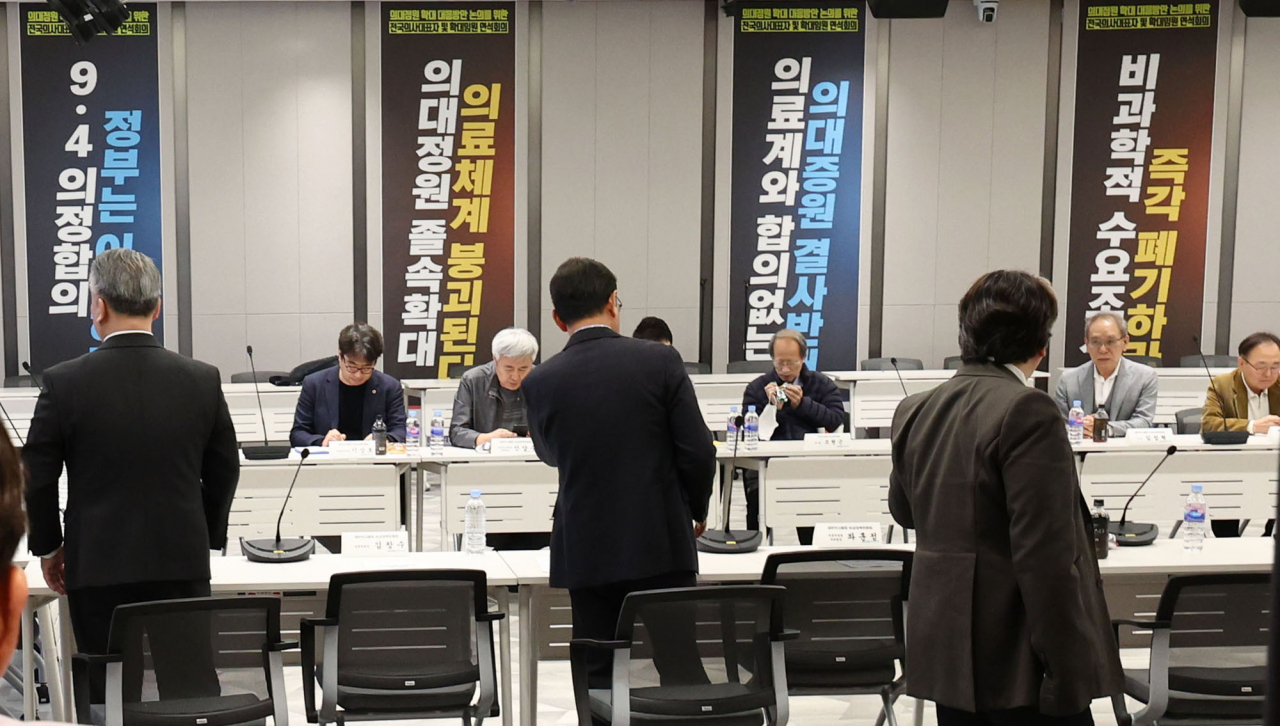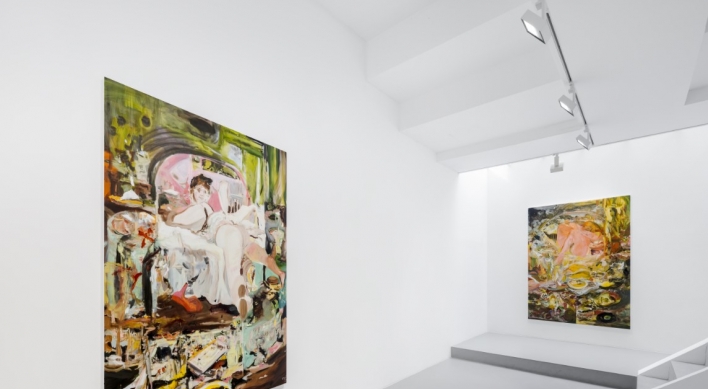Senior doctors positively assess Yoon-junior doctors meeting, vow 'unified' response hike plan withdrawal
By YonhapPublished : April 7, 2024 - 19:57

A major doctors' association on Sunday assessed positively the recent meeting between President Yoon Suk Yeol and the chief of a striking trainee doctors' group despite criticism by some junior doctors, vowing a unified response with trainee doctors and medical professors to the government's medical school quota hike plan.
Last week, Yoon met with Park Dan, the head of an emergency committee at the Korea Intern Resident Association, to discuss the ongoing standoff over the plan to increase the number of medical school admissions by 2,000 starting next year from the current 3,058 seats to address a shortage of doctors.
In protest, more than 90 percent of South Korea's 13,000 trainee doctors have walked off the job since Feb. 20, causing major disruptions to hospital operations.
The meeting was the first of its kind, but some trainee doctors have accused Park of having unilaterally made the decision to meet with Yoon without fully gathering opinions from his colleagues.
"The meeting itself bore significance, as Park was able to explain details about what trainee doctors have demanded of Yoon," Kim Seong-geun, an official of the Korea Medical Association's emergency committee, said during a press briefing.
"We once again express support for trainee doctors and medical students. We are united and make the same voice," Kim said, adding that the KMA will hold a joint press briefing with trainee doctors, medical school students and other organizations in the medical circle after the April 10 general elections.
Such a joint response raised hope that the government and doctors can speed up efforts to find ways of breaking the current impasse.
There are several groups among doctors and members of medical schools, including the KMA and the KIRA, and they have dealt with the issue separately.
Despite the talks, no immediate breakthrough has been made.
Following the meeting, Park said in his Facebook post, "There is no future for the medical service of the Republic of Korea" without elaborating further.
The KMA also made it clear that the medical circle wants the government to revisit the quota hike plan from scratch.
"The government has said that it does not stick to the number '2,000,' but it has not suspended administrative procedures regarding the stated plan. The government must stop the process to show sincerity, which will lead to the return of trainee doctors and medical students," Kim said.
In a national address last week, Yoon called on doctors to come up with a "unified proposal" on the appropriate increase in medical school admissions, saying the government will be open to talks though it believes a hike of 2,000 is the minimum.
During an interview with Yonhap News Agency on Sunday, Prime Minister Han Duck-soo said the government remains "flexible" over the admission adjustment plan, stressing that it will "not bury itself in numbers."
The government, however, has already allocated the admission quotas to universities.
In support of the junior doctors' collective action, medical school professors nationwide have submitted their resignations.
The professors, who serve as senior doctors at major hospitals, have also reduced their weekly work hours to 52 by adjusting surgeries and other medical treatments, and minimized medical services for outpatients.
More than 10,000 medical school students have so far applied for a leave of absence to protest the government's decision.
The government is pushing to increase the admission quota to address a shortage of doctors, particularly in rural areas and essential medical fields, such as high-risk surgeries, pediatrics, obstetrics and emergency medicine.
Given the rapid population aging and other issues, South Korea is also expected to fall short of 15,000 doctors by 2035.
But doctors argue the government must devise ways of better protecting them from malpractice suits and extending compensation to induce more physicians to practice in such "unpopular" areas. (Yonhap)






![[Herald Interview] Mom’s Touch seeks to replicate success in Japan](http://res.heraldm.com/phpwas/restmb_idxmake.php?idx=644&simg=/content/image/2024/04/29/20240429050568_0.jpg&u=)



![[News Focus] Lee tells Yoon that he has governed without political dialogue](http://res.heraldm.com/phpwas/restmb_idxmake.php?idx=644&simg=/content/image/2024/04/29/20240429050696_0.jpg&u=20240429210658)








![[Today’s K-pop] Seventeen sets sales record with best-of album](http://res.heraldm.com/phpwas/restmb_idxmake.php?idx=642&simg=/content/image/2024/04/30/20240430050818_0.jpg&u=)